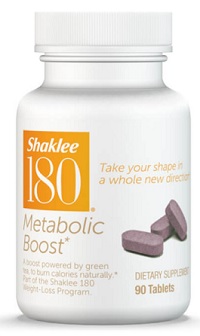What is Your Resting Metabolic Rate, and Why It Matters
By Donovan Baldwin
 Having trouble getting dressed recently? Maybe you're having to jump up and down or lay on the bed just to get those jeans to fit over your thighs...which seem to have gotten bigger recently. Having trouble getting dressed recently? Maybe you're having to jump up and down or lay on the bed just to get those jeans to fit over your thighs...which seem to have gotten bigger recently.
Well, before the neighbors begin complaining about the mild earthquakes you create, and the words "thunder thighs" etch their way too deep into your psyche, why not think about making a few changes to create a better...and healthier...life for yourself...and thinner thighs in the process.
Hey! Why not just go on a diet and lose a few pounds?
Well, dieting does create some problems of its own, and healthy weight loss does not need to mean that you will starve to death. But, you DO have to make some specific efforts to lose weight. However, most diets don't work, so, how will you lose weight?
But, weight loss can be a bit confusing...a bit like buying foods in a busy marketplace. Too crowded with products and recommendations that have too many promises. It boggles up your mind! These promises come with the best advertisements and testimonials.
WEIGHT MANAGEMENT, YOUR METABOLISM, AND YOUR RESTING METABOLIC RATE
Here's a bit of news: Did you know that you actually can have a great deal of control over your weight?
You see, one of the keys to healthy weight management is to learn about, and use, your metabolism and how to calculate your RMR or Resting Metabolic Rate.
WHAT IS THE RESTING METABOLIC RATE
RMR is the rate, or speed, at which the body uses fuel, by burning calories, at times when we simply are not doing anything, or, while...you got it...resting.
Many things can affect our RMR. One of the most obvious of these is age.
As we become older, many bodily activities tend to slow down, including our resting metabolic rate. One major contributor to this is that we lose lean muscle mass, which is an "active" tissue, in the metabolic sense, burning more calories than non-lean tissue, and this leads to lower RMR. Simultaneously, we tend to be less active, and often continue to eat pretty much the same as in our younger days. As a result, aging is commonly accompanied by weight gain.
Going on a diet may help you drop a few excess pounds, but, it is not necessarily an effective, or permanent, way to lose weight as it does not change the resting metabolic rate.
Also, other factors come into play when we "diet" to lose weight. We may have short-term success and lose a few pounds fairly rapidly in some instances, but what about the long-term ones? Actually, we know that in the long term, diets don't work. We know for a fact that there is a better, a more permanent, form of weight loss, than just going on a diet, and that involves revving up your metabolism, and ultimately increasing your resting metabolic rate.
INCREASING YOUR RESTING METABOLIC RATE
Increasing your resting metabolic rate will generally require a combination of exercise and wise nutritional choices.
You, see, when you diet to lose weight by simply decreasing calories, the weight loss you experience may mean that you are losing some muscle tissue instead of, or, as well as, losing fat. Lean muscle mass is essential for having a higher metabolism, but, when you decrease calories drastically through dieting, you may actually cause your body to make use of lean tissue for the body's needs.
Choosing an effective exercise and nutrition program really matters.
Aerobic exercises, or good cardio exercises are great for burning fat during the workout itself, and strength training, such as weight lifting is an excellent form of exercise for increasing metabolism after the exercise is over. Also, following a sensible eating program, such as the Mediterranean Diet, at the same time will increase the effectiveness of your weight management efforts by meeting your nutritional needs, while omitting foods which tend to increase body fat and slow down metabolism.
Another option is the use of various metabolism enhancing supplements such as the one recently endorsed on his TV show by a well-known health expert, Raspberry Ketones.
As you take steps to increase your RMR, you are pushing yourself on a track to a lower body weight and healthier life.
About the Author:
---------------------------------------------
Donovan Baldwin is a freelance SEO copywriter and fitness aficionado currently residing in the Dallas, Texas area, and a University of West Florida alumnus. He is retired from the U. S. Army after 21 years of service. In his career, he has held many managerial and supervisory positions. However, his main pleasures have long been travel, writing, nature, health, and fitness. In the last few years, he has been able to combine these pleasures by writing poetry and articles on subjects such as health, fitness, weight lifting, yoga, weight loss, the environment, global warming, happiness, self improvement, and life. His blog on senior health and fitness can be found at Fitness-After-40.ws.
---------------------------------------------
NOTE: You have full permission to reprint this
article within your website or newsletter as long
as you leave the article fully intact and include
the "About The Author" resource box. Thanks! :-)
---
While I do not normally recommend diets themselves, healthy eating is important to any health, fitness, or weight loss program. Click Here to learn more about Wonderslim.
P. S. If you want to learn more about why Diets Don't Work, please click here.
If you want to learn how to burn fat, a great book to read is Burn the Fat, Feed the Muscle by Tom Venuto
|


